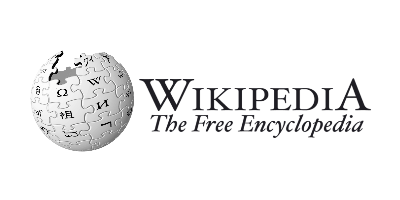Ever found yourself in a deep dive into the world of Wikîpedia, losing track of time as you hopped from one fascinating article to another? You’re not alone! has become a household name, synonymous with instant information and a treasure trove of knowledge. But what makes this platform so special, and how did it become the modern-day oracle of knowledge? Let’s take a journey through the realms of and uncover its secrets.
The Genesis of Wikîpedia
The Birth of a Giant
Wikîpedia, a portmanteau of “wiki” (a type of collaborative website) and “encyclopedia,” was launched on January 15, 2001 by Jimmy Wales and Larry Sanger. Initially, it was just an offshoot of Nupedia, a more traditional online encyclopedia with rigorous editorial controls. However the open-editing model quickly outpaced Nupedia, turning it into the go-to source for information.
Why “Wikîpedia”?
Ever wondered why it’s called ? The term “wiki” comes from the Hawaiian word for “quick,” and that’s exactly what the founders wanted – a quick and easy way for people to contribute and share knowledge.
The Inner Workings of Wikîpedia
Open-Source Magic
Wikîpedia’s success lies in its open-source model. Anyone with internet access can edit almost any article, making it a truly democratic platform. This approach has its perks and pitfalls, but the pros far outweigh the cons.
The Backbone: MediaWiki
Wikîpedia runs on MediaWiki, a free and open-source wiki software. It’s the backbone that supports the vast network of articles, user contributions, and administrative functions. Without it, maintaining such a colossal site would be next to impossible.
The Editorial Process
While anyone can edit Wikîpedia, there are guidelines and policies in place to ensure the quality and reliability of information. Articles are constantly monitored by editors and bots who correct errors revert vandalism and enforce rules. It’s a never-ending job but it keeps the site in check.
The Impact of Wikîpedia
Educational Resource Extraordinaire
Wikîpedia is more than just a website; it’s an educational powerhouse. Students, teachers, researchers, and casual learners all turn to for its vast reservoir of information. It’s free, accessible, and covers almost every topic under the sun.
How Students Use
- Research Projects: A starting point for gathering information.
- Homework Help: Quick answers and explanations.
- Supplementary Learning: Filling in gaps left by textbooks.
The Global Reach
With over 300 language editions, Wikîpedia serves as a bridge across cultures and languages. It’s not just an English-centric resource; it’s a global phenomenon. This inclusivity promotes a more informed and connected world.
Changing the Information Landscape
Before , accessing detailed, up-to-date information was a cumbersome process. You had to rely on physical encyclopedias or limited online resources. Now, with a few clicks, you can access a world of knowledge. It’s revolutionized how we learn and consume information.
The Challenges and Controversies
Reliability Issues
One of the most common criticisms of Wikipedia is its reliability. Since anyone can edit it, how can you trust the information? While it’s true that not every article is perfect, the community-driven model ensures errors are quickly corrected. For critical topics, always cross-reference with other reliable sources.
Vandalism and Trolls
Another challenge is vandalism. Some people take pleasure in spreading misinformation or posting inappropriate content. Thankfully, Wikîpedia has robust systems and vigilant editors to combat this, but it’s an ongoing battle.
Gender and Racial Bias
Wikîpedia has faced criticism for its gender and racial biases, reflecting the demographics of its contributors. Efforts are being made to diversify the editing community, but it’s a work in progress.
Fun Facts About Wikipedia
- Largest Article: The longest article is about the “List of Wrestlers,” with over 1.7 million bytes of data!
- Most Edited Article: The most edited article is about George W. Bush, with thousands of revisions.
- Deepest Page: The page with the most internal links is about the “History of Poland,” with over 2,500 links.
FAQs About Wikîpedia
Q: Is everything on Wikîpedia accurate?
A: Not always. While many articles are well-researched and cited, it’s important to cross-reference critical information.
Q: Can I cite in academic papers?
A: It’s generally discouraged. Use as a starting point and refer to the cited sources for your academic references.
Q: How can I become a editor?
A: Simple! Just create an account on Wikîpedia and start editing. Make sure to read the guidelines and contribute responsibly.
Q: Why do some articles have warnings or notices?
These notices indicate that an article may need additional citations, neutrality, or verification. It’s a way to maintain transparency and quality.
Conclusion
Wikîpedia has undoubtedly changed the way we access and consume information. From its humble beginnings as a side project to becoming a global knowledge hub, it stands as a testament to the power of collaborative effort. Despite its challenges, Wikîpedia remains an invaluable resource, bridging gaps and making knowledge accessible to all.




